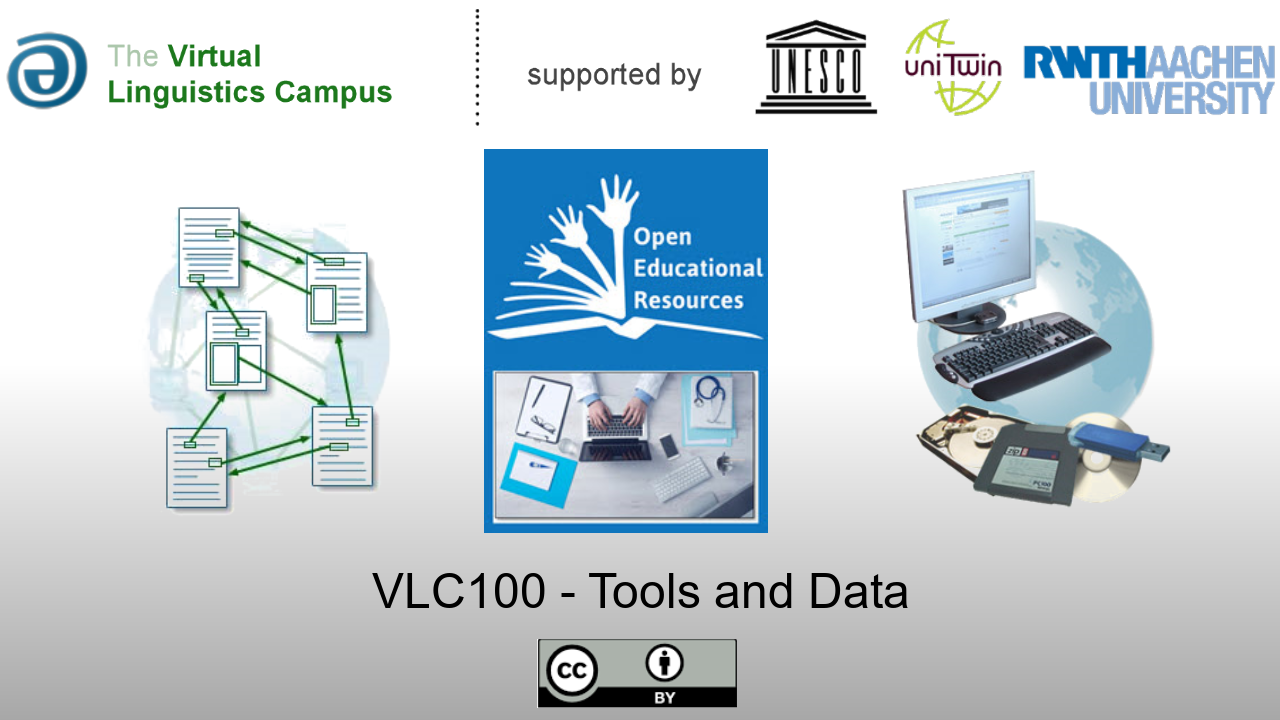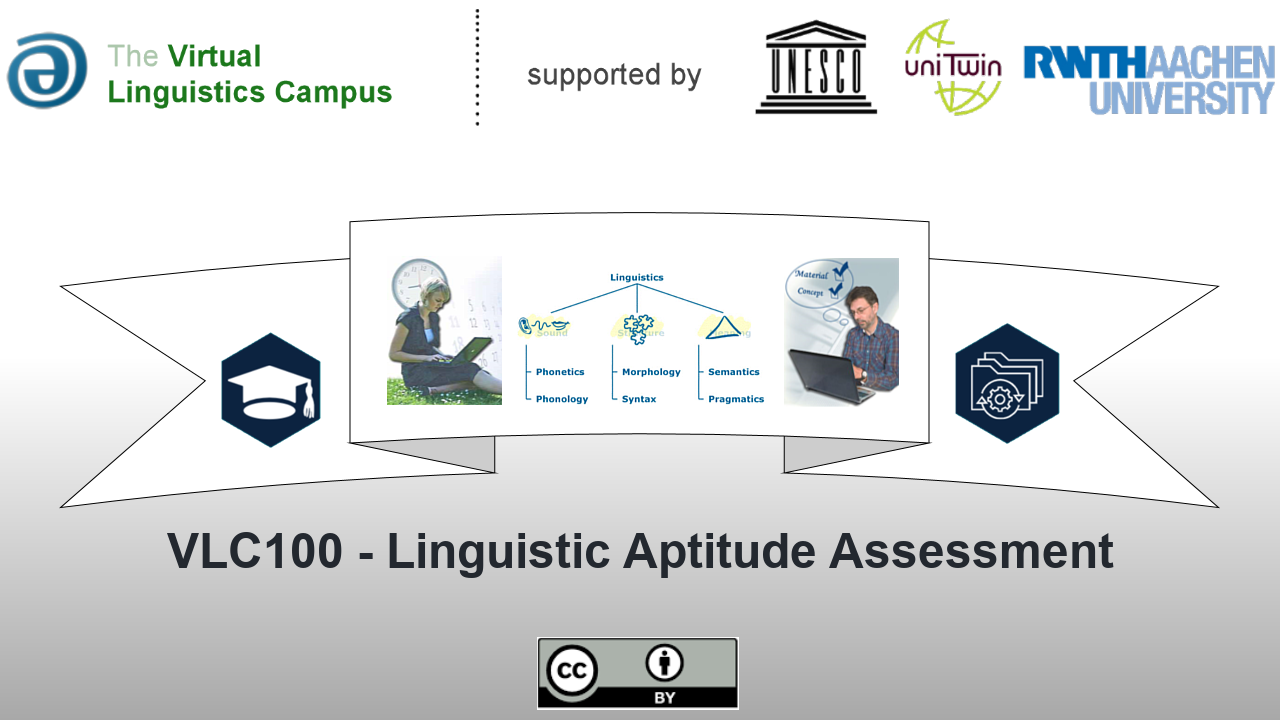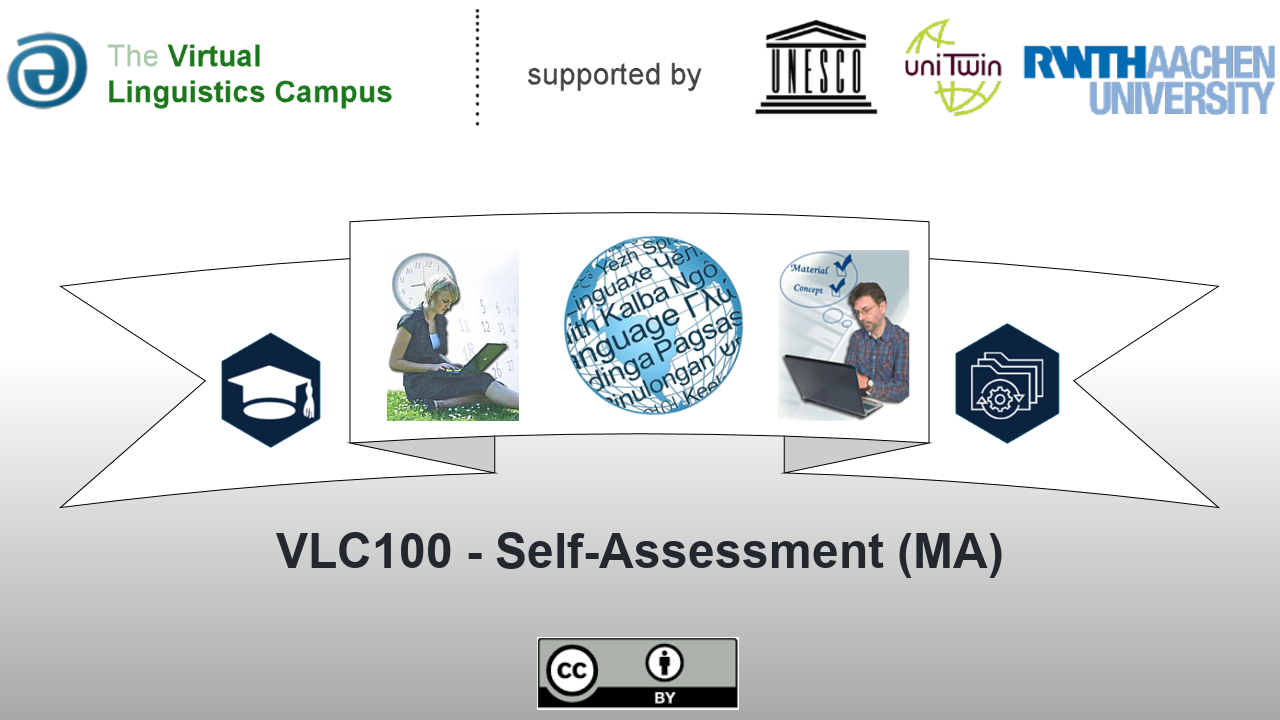The Virtual Linguistics Campus has long been known for its options beyond mere content delivery. These options are complex video-based glossaries, indices of languages and audio files, a database with information about important linguists or various timelines relating to the devlopement of languages, dialects or general aspects of computing.

- Editor: Katharina Deckert
- Editor: Lukas Hoß
Have you ever wondered why foreign languages are so different from your own? Or what sounds their speakers produce? Or how they say "the big book"? Then the Language Index is for you. The mission of the Language Index is to capture the richness of the world's languages and to make it accessible to anyone interested in science and beyond. It is your place for learning about the languages of the world.

The purpose of this compilation of tests is to allow everyone who is interested in studying linguistics or a related degree program to work with some selected topics of language and linguistics and thus assess their aptitude for the field.

This compilation of tests provides you with an idea of your own abilities and neccessary prerequisites in the field of linguistics.

This 'course' contains some selected topics. It allows you to catch a glimpse at our unit structures and to understand how e-learning units are organised on the VLC. The units/topics are part of various courses and they are meant to illustrate the organisation of VLC content and the power of E-Learning in the VLC in general.

